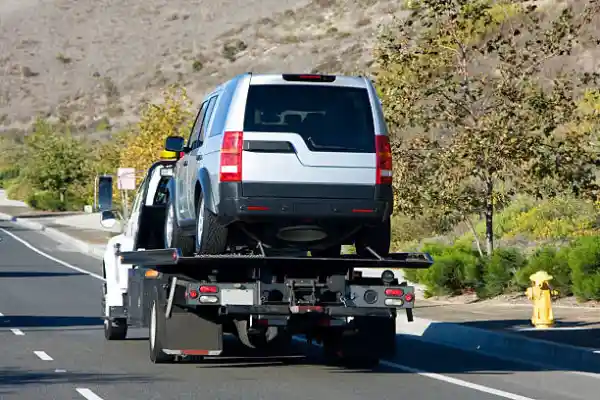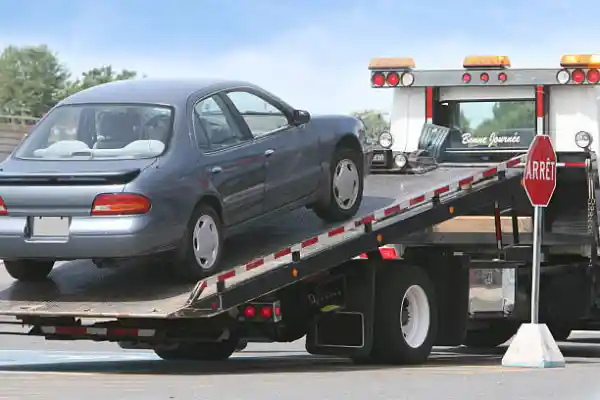Are you looking for a tow truck to support your business operations? Before making any decisions, it’s essential to determine if the tow truck is a commercial vehicle.
In brief, all tow trucks are classified as commercial vehicles due to their inherent nature of carrying heavy loads. But, there are specific requirements that a tow truck must fulfill to qualify as commercial. These are weight capacity, specialized attachments, and equipment for towing diverse vehicle types safely and efficiently.
By understanding these critical factors, you can decide whether your tow truck qualifies as a commercial vehicle. So let’s clarify more details about what makes a tow truck commercial and how they differ.
What Things Are Considered a Commercial Tow Truck?

Commercial towing is vital in ensuring the smooth operation of businesses that rely on commercial vehicles. If you’re considering purchasing or operating a tow truck for commercial purposes, there are several key factors to remember:
- No 01: Weight Capacity
- No 02: Towing Equipment
- No 03: Stability and Control
- No 04: Specialized Attachments
- No 05: Size and Dimensions
- No 06: Industry-Specific Adaptations
- No 07: Reliable Service Provider
- No 08: Roadside Assistance
No 01: Weight Capacity
Commercial tow trucks can easily handle heavy loads since their weight capacity exceeds 25,000 pounds.
They’re built using specialized equipment and sturdy, durable materials for carrying large objects such as construction equipment, RVs, and buses.
These trucks are designed for heavy-duty towing and are indispensable in transportation.
No 02: Towing Equipment
Heavy-duty hooks, winches, lifts, and cables on commercial tow trucks let them tow even big vehicles. These tools allow tow trucks to safely attach to stranded and disabled vehicles and lift them onto the truck bed for transportation.
The hooks secure the vehicle from underneath while the winch extends and retracts as necessary. Hydraulic lifts provide additional capacity for exceptionally large vehicles, and the cables ensure everything stays in place during transit. Some tow trucks also have air compressors, allowing on-site repairs.
No 03: Stability and Control
Regarding commercial tow trucks, stability and control are vital for safe towing operations. These machines boast advanced suspension systems, reinforced frames, and powerful engines, all contributing to their impressive capabilities.
The suspension system distributes weight evenly across all tires, while the reinforced frame offers extra support to handle the added stress. And with a powerful engine, drivers enjoy superior acceleration and braking control for confident handling on the road.
No 04: Specialized Attachments
When towing a large commercial vehicle like a big rig or bus, it’s crucial to use specialized attachments available on some tow trucks. These attachments include booms or hydraulic arms that can grab vehicles involved in accidents or missing wheels.
Integrated tow trucks combine a boom and wheel lift into a single unit specifically designed for towing larger commercial vehicles.
No 05: Size and Dimensions
These vehicles are larger and more robust than standard tow trucks. Their increased size allows them to safely tow larger vehicles without compromising stability or safety.
In fact, the extra weight and length of these trucks can actually improve their towing capabilities by providing more traction and stability on the road.
When towing a heavy-duty vehicle, ensure the tow truck you call has the proper size and dimensions to handle the job.
No 06: Industry-Specific Adaptations
Commercial tow trucks come equipped with specialized features that cater to various industries. These robust vehicles are designed to transport heavy-duty equipment and cargo safely.
For instance, construction tow trucks feature a flatbed design that comfortably accommodates heavy machinery such as bulldozers and excavators.
Similarly, agriculture tow trucks come with a hydraulic lift system, allowing them to hoist large tractors and farming equipment with ease.
These industry-specific adaptations make commercial tow trucks an incredibly versatile tool for businesses in various fields.
No 07: Reliable Service Provider
When facing heavy-duty emergencies, prompt and professional assistance is essential. To ensure such assistance, choosing a towing service provider with a proven track record of reliability is important. Look for companies that provide quality customer service and fast response times.
A dependable towing company should have specialized equipment and trained personnel to handle different types of vehicles and situations. Also, they must be available 24/7, offer competitive pricing, and have transparent billing practices.
In California, Towing Service Santa Clara provides heavy-duty towing and recovery services nationwide. You can rely on a reliable towing service provider in Santa Clara for any emergency towing needs.
No 08: Roadside Assistance:
Roadside assistance is an essential service when you need to move a commercial vehicle. Professional tow truck drivers know how to operate your specific type of tow truck and can provide expert advice and assistance when transporting heavy loads.
From changing tires to providing emergency carlock outs service, roadside services have you covered in case of an emergency. If you’re looking for a reliable roadside assistance provider, choose one that offers 24/7 support and can handle heavy-duty vehicles.
What Are the Types of Commercial Tow Trucks?

Knowing the different types available is important if you’re looking to invest in a commercial tow truck.
01: Flatbed Tow Truck
An immobile vehicle is transported effortlessly with a flatbed tow truck. It tilts and lowers to load and secure vehicles such as cars, trucks, vans, SUVs, motorcycles, boats, and heavy equipment.
By design, the flatbed tow truck allows for seamless loading and unloading, ensuring the safety of the driver and the vehicle being transported. It is an indispensable tool for any business that needs to move immobile vehicles safely and securely.
02: Hook and Chain Tow Truck
In some cases, hook-and-chain tow trucks still get the job done, but they’re less common. This traditional method of towing dates back to the time when vehicles were built with more robust frames.
With a hook-and-chain tow truck, the hook and chain are attached to either the axle or frame of the towed vehicle and lift it off the ground. Despite its effectiveness in terms of transport, this method can damage certain parts of the car, like the bumper.
03: Wheel-Lift Tow Truck
You can think of the yoke as a metallic arm that extends under the vehicle and grips the wheels to lift them. This type of tow truck is commonly used for vehicles with one immobilized axle, making it a versatile option for towing.
Although these tow trucks aren’t conventional commercial vehicles like delivery vans or semis, they’re still considered commercial vehicles. This is because they are employed for commercial purposes, such as transporting cars from one location to another.
04: Boom Tow Truck
Using a boom tow truck requires specialized training and expertise due to its hydraulic arm that can lift and extend a vehicle’s front or rear end. A tow truck like this is commonly used for recovering vehicles involved in accidents or those missing wheels.
The boom tow truck features a powerful winch system, which allows it to pull heavier loads than other types of tow trucks. Also, the boom can rotate 360 degrees, making it easier for operators to access hard-to-reach areas.
05: Integrated Tow Truck
An integrated tow truck combines the functionality of a boom and wheel lift, making it possible to tow bigger vehicles like big rigs and buses.
Its unique design and capabilities make it a popular choice for businesses seeking to handle their heavy-duty towing needs. Its powerful engine provides ample power to handle even the most challenging towing tasks.
Invest in the Right Commercial Tow Truck for Your Business
Selecting the most appropriate commercial tow truck is essential for maximizing efficiency and profitability. A tow truck must carry adequate insurance and adhere to all safety regulations, regardless of what each state defines as a commercial vehicle.
Whether you opt for a flatbed, wheel lift, or an integrated tow truck, each type has advantages and disadvantages. Therefore, carefully assess your business needs to select a tow truck appropriate for your specific requirements. Investing in the right equipment is critical to running a successful business.
With the right commercial tow truck, you can create sustainable growth and long-term profitability for your business. Always remember choosing the right commercial tow truck is the key to the success of your business.
